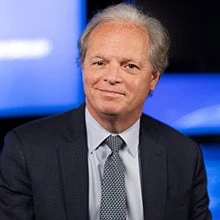 Photo: Denisa Maňásková
Photo: Denisa Maňásková
As part of our efforts to become a better Bank, one that’s fit for purpose to meet the needs of the countries we support and to end poverty on a livable planet, the World Bank is transforming its approach to knowledge. We’re putting the client, those living in developing countries, at the heart of our knowledge work.
The number and complexity of crises in the past few years have dealt a series of blows to people in developing countries and sent progress toward the Sustainable Development Goals badly off track. Our clients urgently need solutions today, not five years from now. We must move quickly and efficiently to ensure that knowledge and solutions to development challenges are in the hands of those who need them most.
Knowledge has been critical to the World Bank’s work for 80 years, and now we are moving to become not just a funding mechanism but also a knowledge mechanism. We are bringing experts to the forefront of our country-driven model, working closely with governments to create targeted development plans that combine their ambition with our expertise.
While knowledge has always been embedded in everything the World Bank does—from financing and technical assistance to partnerships, convening, and policy advice—we must be more ambitious given today’s context. We have to take new steps to transform the way knowledge is collected, shared, stored, and used, and fully tap into the rapid advances in technology.
The Knowledge Compact, rolled out recently during our Spring Meetings, presents our approach to becoming a world-class Knowledge Bank, building on World Bank Group expertise and knowledge gained over decades of development work. It is organized in three ways:
First, the new compact responds to the challenges our clients are facing today. These challenges are difficult and varied but must be addressed simultaneously. Financing alone cannot solve these problems; we also need more innovative solutions, drawing on the latest knowledge to make that financing more effective.
Second, the compact responds to the call for a better Bank, recognizing that the World Bank cannot expand its capacity without also elevating the role of knowledge.
Third, it outlines how we can take advantage of the opportunities presented by rapid advances in technology, including and especially in artificial intelligence.
Specifically, the Knowledge Compact details our plan to leverage the vast potential of technology to deliver best-in-class knowledge to our clients with greater speed, quality, and impact by improving our work in four key areas:
- Consolidating and prioritizing our knowledge products and creating new ones.
- Pursuing worldwide partnerships, including across the Global South and the private sector.
- Supporting the next generation of the world’s development leaders, policy makers, and practitioners through increasing capacity and skill building and creating a new World Bank Group academy.
- Developing cutting-edge systems within the World Bank Group to deliver knowledge faster. This includes organizing our knowledge work into five simple areas—People, Prosperity, Planet, Infrastructure, and Digital—and creating new departments to focus on outcomes, innovation, knowledge, and learning.
As we transform our approach to knowledge, I am convinced we will improve our ability to innovate, move faster, and respond better to clients’ current and evolving development priorities. Easier access to best practices, lessons learned, and groundbreaking ideas—from the Bank’s own development experiences and from countries and partners around the world—will ensure knowledge and solutions to development challenges are delivered at impact and at scale.
Our goal is to build a learning institution to identify, develop, and implement the best ideas, one that will serve us well in our efforts to end extreme poverty and boost shared prosperity on a livable planet and to help transform development well into the future.


Join the Conversation